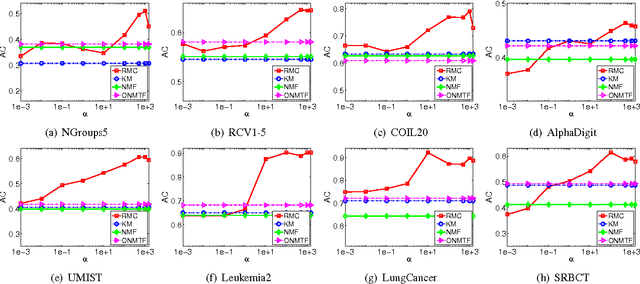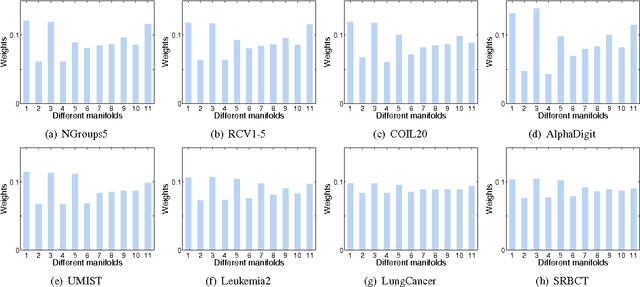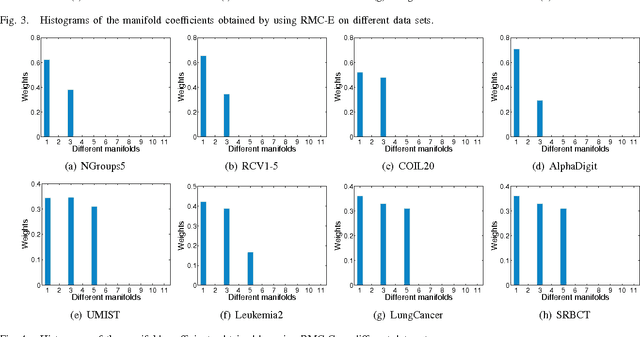Relational Multi-Manifold Co-Clustering
Paper and Code
Nov 16, 2016



Co-clustering targets on grouping the samples (e.g., documents, users) and the features (e.g., words, ratings) simultaneously. It employs the dual relation and the bilateral information between the samples and features. In many realworld applications, data usually reside on a submanifold of the ambient Euclidean space, but it is nontrivial to estimate the intrinsic manifold of the data space in a principled way. In this study, we focus on improving the co-clustering performance via manifold ensemble learning, which is able to maximally approximate the intrinsic manifolds of both the sample and feature spaces. To achieve this, we develop a novel co-clustering algorithm called Relational Multi-manifold Co-clustering (RMC) based on symmetric nonnegative matrix tri-factorization, which decomposes the relational data matrix into three submatrices. This method considers the intertype relationship revealed by the relational data matrix, and also the intra-type information reflected by the affinity matrices encoded on the sample and feature data distributions. Specifically, we assume the intrinsic manifold of the sample or feature space lies in a convex hull of some pre-defined candidate manifolds. We want to learn a convex combination of them to maximally approach the desired intrinsic manifold. To optimize the objective function, the multiplicative rules are utilized to update the submatrices alternatively. Besides, both the entropic mirror descent algorithm and the coordinate descent algorithm are exploited to learn the manifold coefficient vector. Extensive experiments on documents, images and gene expression data sets have demonstrated the superiority of the proposed algorithm compared to other well-established methods.
 Add to Chrome
Add to Chrome Add to Firefox
Add to Firefox Add to Edge
Add to Edge